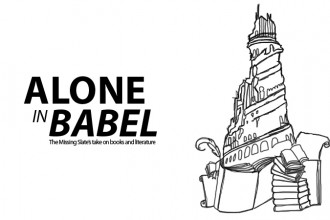Just as The Deer Hunter was followed quickly by Apocalypse Now so Platoon would be immediately succeeded by another popular landmark of the Vietnam War film movement. Stanley Kubrick’s 1987 masterpiece Full Metal Jacket shares the theme of loss of humanity with Platoon, and like Stone’s work takes the narrative approach of showing the audience a progression from fresh faced recruit to battle-hardened soldier.
 The film is comprised of two halves, one detailing the training of the soldiers under the no-nonsense Gunnery Sergeant Hartman (R. Lee Emery) and the latter telling the story of the graduates in battle. The story thus allows the audience to see the hardening of the young men who will be sent off to war, and tells them explicitly that the effect of ‘Nam on the psyche of the American soldier does not start on the battlefield but in basic training.
The film is comprised of two halves, one detailing the training of the soldiers under the no-nonsense Gunnery Sergeant Hartman (R. Lee Emery) and the latter telling the story of the graduates in battle. The story thus allows the audience to see the hardening of the young men who will be sent off to war, and tells them explicitly that the effect of ‘Nam on the psyche of the American soldier does not start on the battlefield but in basic training.
The warping of morality and humanity is detailed through the experiences of three recruits, each of whom crumble to the horror of war at varying stages of the story and in differing manners. Overweight and unpopular “Private Pyle†Leonard Lawrence is the first casualty, suffering the verbal abuse of Hartman and a harrowing physical reprisal from his fellow recruits for being a burden to their training. As the first half of the film progresses he is shown to be slowly losing his grip on reality while simultaneously becoming an excellent shot with the Marine standard issue rifle. The message is clear: his progression as a soldier occurs parallel to his devolving humanity. This culminates in a famous confrontation with Hartman, in which the now fully snapped Private Pyle identifies his target and pulls the trigger before blowing his own brains out. With Pyle, Kubrick explored the themes of the ‘Nam War Movie in combination with his very own tropes, including the so-called “Kubrick Stareâ€, which identifies a character’s descent into insanity to the audience. By combining terrifying Vietnam and Kubrick tropes, Full Metal Jacket’s character exploration of Private Pyle is one of the most harrowing of the whole Vietnam War film movement.
His fellow recruits, Private “Joker†and Private “Cowboy†(for in Hartman’s training no one can retain their real names), instigate the beating which acts as the catalyst for Pyle’s eventual demise, and both men end up paying the price for this act of friendly fire. Cowboy is killed after two of his squad are slowly slaughtered by a sniper. Meanwhile Joker, who has spent much of the film philosophising on what war does to a person, is tasked with shooting the sniper up close to terminate the threat. The sniper is a young woman, and despite the anguish she has caused his platoon Joker struggles to pull the trigger. In the end though he has no choice; he may have been able to justify to himself his actions back in training, but now Vietnam has fully claimed his innocence. Joker survives, but he loses a part of himself in the process.
The fact that these two films are some of the most oft-cited, most acclaimed of the Vietnam War film movement is a testament to their cinematic power but also their impact on the overall Vietnam psyche. As America moved towards the end of the twentieth century and a new generation grew up with no memory of the actual conflict, these Vietnam War movies became America’s window into that time. Guided by those who were there like Oliver Stone, and those whose filmmaking ethos echoed the confusion and horror of the time like Stanley Kubrick, American movie-going audiences vicariously experienced what was by popular consensus a confusing and terrible chapter in American history. The fact that persistent themes continued to crop up, like the loss of humanity and the blurring of morality, only cemented the Vietnam War movie’s status as legitimate commentary. For if Platoon, brought to the screen by a veteran and therefore a credible eyewitness, could share the darkness and turmoil of more outlandish artistic endeavours like Apocalypse Now and Full Metal Jacket, surely that meant that these movies were a true window into the actual ‘Nam experience?
There were however other films which detailed the experience of the Vietnam War, and while certain themes and tropes remained in place they would carry a somewhat different message.
In the third part of this series we will explore Hollywood’s further portrayal of the war itself through less dark and even more comedic output. Click here to read the first part.
Michael Dodd is a film critic for the magazine.




